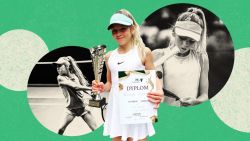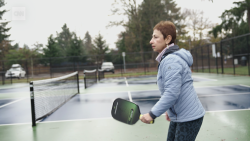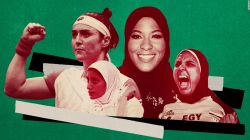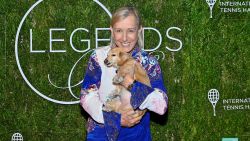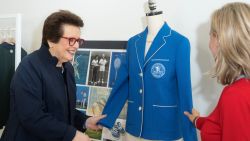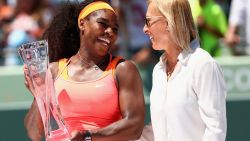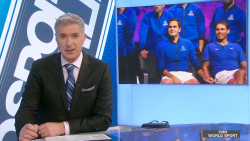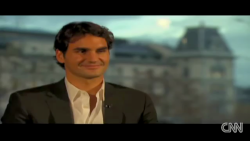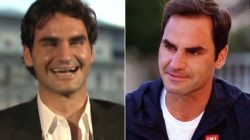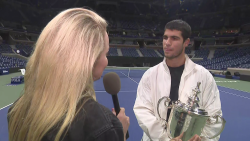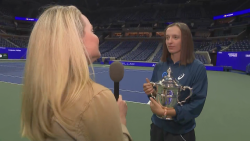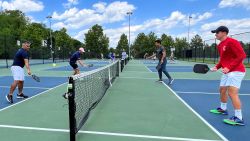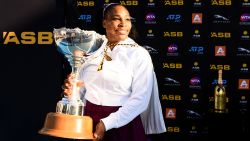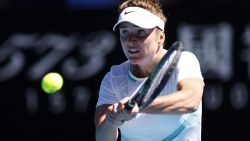Ksenia Efremova hadn’t even turned three years old and her mother already had the feeling her daughter was destined to become a star.
One afternoon when her older brother was practicing on the tennis court, Efremova picked up one of his rackets – as she would often do – and began hitting a basket of balls.
“She started to throw the balls to herself,” Julia Efremova, a former professional tennis player, tells CNN.
“I looked at it and I was amazed because all the balls were flying over the net and she did the motions perfectly. I said to myself that was the time to work with her because she had so much passion and she wanted it.
“It was not actually my choice. She started her career like that.”
Now 12 years old, Efremova is widely considered to be one of the brightest young talents in tennis and has become something of a star already, amassing more than 35,000 followers on Instagram and securing sponsorship deals with Nike and Yonex.
She currently trains at the prestigious Mouratoglou Tennis Academy in France, founded in 1996 by Serena Williams’ current coach Patrick Mouratoglou.
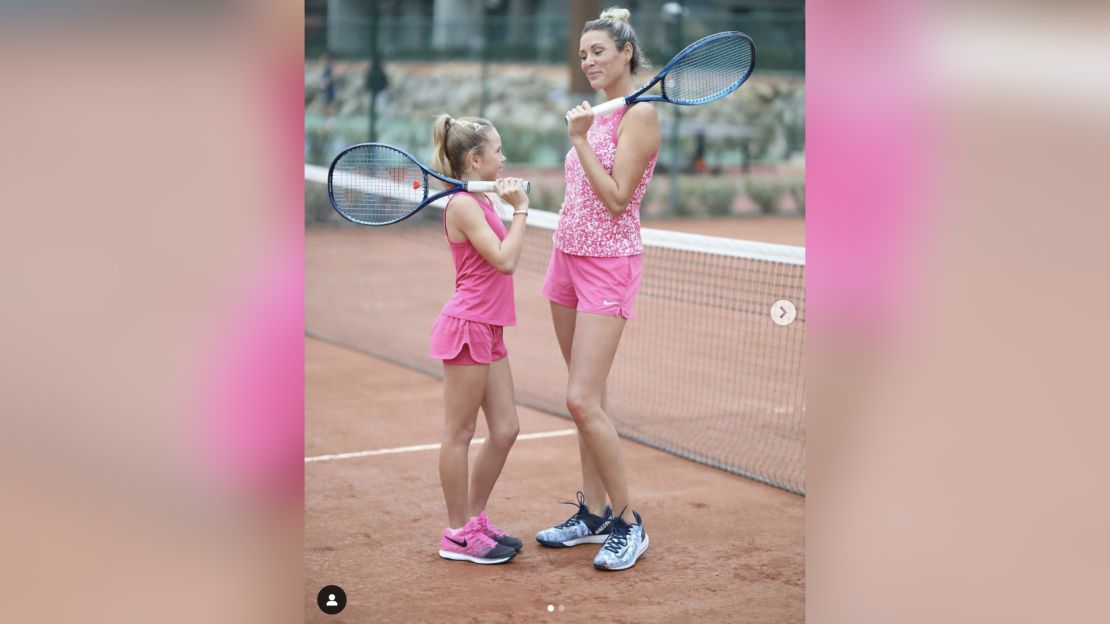
The academy holds selection weeks throughout the year, with potential young stars coming from all over the world to show off their talents and try and earn a place.
“They come to get tested on the physical, the tennis, of course, the mental side,” Mouratoglou explains. “We see them practice. We also see them compete and then we take a decision whether we want to help them or not.
“We can’t help everyone, but we’re doing the best we can to help the ones that we think have the best potential and our role is to, of course, find a way to help them develop their potential and be the best they can be in the future in order to do that.”
‘An incredible athlete’
Each player accepted into the academy gets access to a coach, a fitness coach and medical team, providing them with an elite support system from as young as nine years old.
They are also provided with detailed debriefs of tournaments and competitive matches, where Mouratoglou says “the stress of the competition” is the best way of seeing what aspects of their game needs developing most.
The likes of Coco Gauff and Stefanos Tsitsipas are among the current rising stars to have spent a significant part of their formative years at the prestigious academy.
Efremova was nine when she arrived at the academy from Russia with her mother, who also acts as her coach, and Mouratoglou says he immediately saw her potential was “huge.”
“Ksenia has incredible potential, I think she has the full package,” he says. “She’s an incredible athlete. I mean, if you look at her social media, you’ll see her. She can do the full splits, she can dance, she can do all kinds of stuff besides tennis.

“She’s moving extremely well. She’s going to probably be tall because her mom is very tall. Her shots are amazing. Her technique is extremely clean. She can take the ball early. She’s aggressive. She’s a very good competitor. So if you look at the whole package, it’s great.”
Julia believes her daughter playing multiple sports has played a large part in making her such a well-rounded athlete at such a young age.
Not only has it provided her with a range of transferable physical skills – such as endurance and flexibility – that have improved her as a tennis player, but Julia also says it was crucial to ensuring Efremova didn’t get bored of playing too much tennis too soon.
In fact, Julia says her daughter’s main sport growing up was gymnastics, often training for three hours a day compared to just one hour of tennis.
“I want to help parents all over the world who have a dream to build a professional tennis player from their kids, because when they’re small and at that age and they have this fire in their eyes, you can’t kill it with hours of work on the tennis court,” she explains.
“For example, Ksenia played [tennis] only three times a week when she was small and I didn’t force her. I forced her in the other ways, so she had dancing, swimming lessons, she had English lessons, she had also break dancing lessons. She was everywhere.”
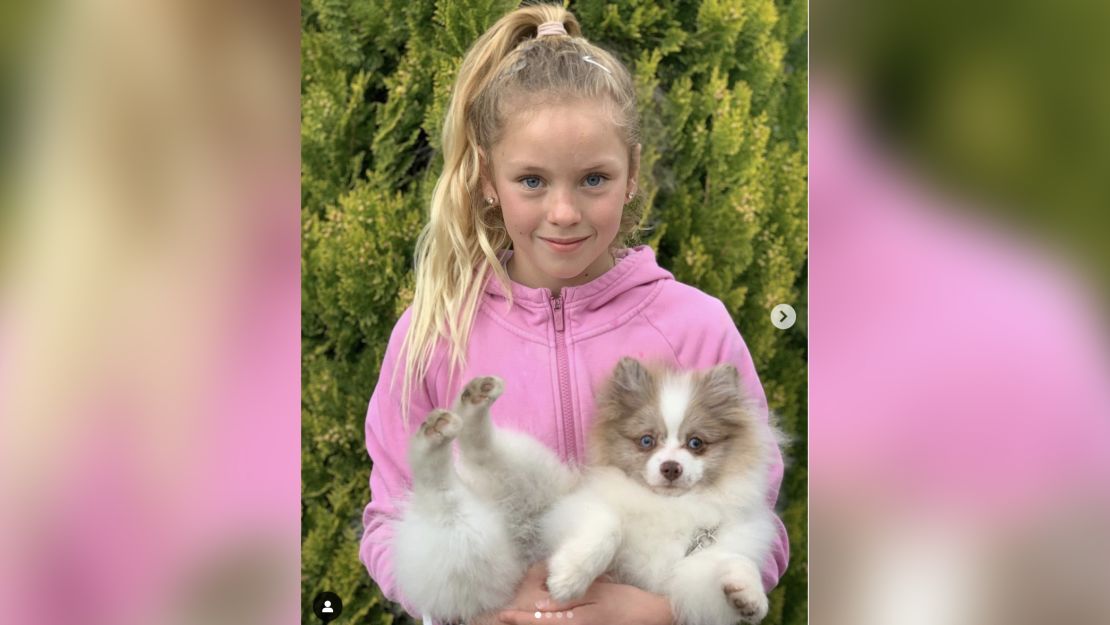
‘I want to become a legend’
Few children will experience the kind of pressure and expectation that Efremova has already dealt with for years, but Mouratoglou says her situation is comparable to that of Gauff’s when she was rising through the ranks.
Failing is an important part of the process in learning to deal with that pressure, Mouratoglou explains, “because failing is understanding.”
At the academy, he says the kids are taught how to vocalize the pressure and nerves they feel before a match in which it has adversely affected them.
“I mean, failing is not a good thing,” he says. “Of course, our job is to make them succeed, but we know that on the way to the success, there will be also some failures – and there has to be. What is important is that those failures are always used in a way to learn and get better.
“So when they fail because of the pressure, they have to know exactly how they felt before the match. They have to realize that they had extra pressure that day that they were not able to deal with and it has to be a constant feedback.
“They will know that next time when they feel that extra pressure, they have to explain it. They have to tell the coach: ‘I don’t feel good today. I feel that pressure today. I feel nervous.’ First, they have to recognize it. Second, you have to have to express it and when they do, we can help them work on that.”
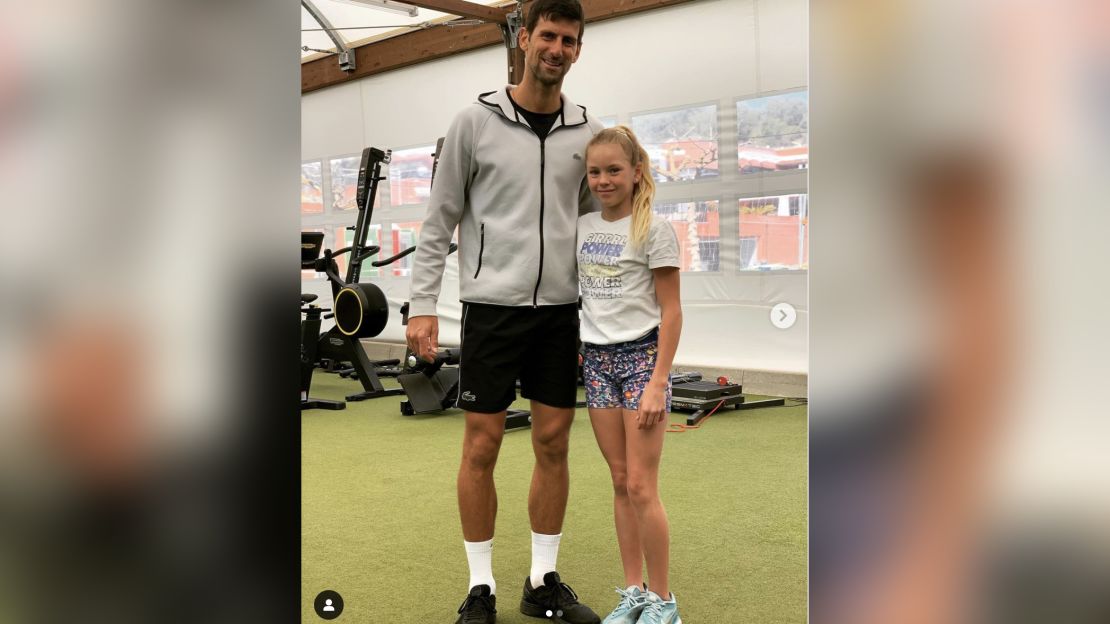
Naturally, some kids will be able to process the pressure and nerves better than others. Mouratoglou says Efremova is still learning, but has already shown remarkable improvements in her time at the academy.
While much of the pressure comes from the expectations of “everybody in the whole tennis industry,” Mouratoglou explains the incredibly high standards Efremova has for herself means that she puts more pressure on herself than anybody.
“She always expects to win,” he says. “There is, for her, no other option than to win trophies.”
Julia Efremova says she sees that determination in her daughter every day during practice and believes “from the bottom of my heart” that one day “she will be the best” tennis player in the world.
“I know her personality. I know who she is. I know how hard she works. I know how [badly] she wants it. I know how she believes,” she says.
“First of all, she believes in herself. She has no doubt in her mind. She has no doubt in her heart that she wants it. So from the bottom of my heart, I know she’ll be the best.
“Sometimes when I’m getting angry and didn’t like something during practices, I ask her: ‘What do you want from tennis?’ And she tells me: ‘I want to become a legend.’ For her it’s not only [enough] to become number one in the world.”

Overcoming tragedy
There perhaps isn’t a bigger testament to Efremova’s remarkable composure than her most recent tournament win, the Tennis Europe Junior in Sweden.
Her father, former amateur player Alexey Efremov, had been battling lymphoma for more than two years. During the tournament, Efremova’s mother received the news that her husband was soon going to lose that battle.
Julia says she had to make the difficult decision about whether to tell Efremova during the tournament or wait until it was over.
“It was very tough, but Ksenia was in the tournament and I had to tell her,” she says. “Of course she was crying. She was shocked. She asked me: ‘Maybe you can wake him up.’
“I said: ‘No, Ksenia. It’s impossible, he’s already in the sky.’ I asked her if maybe she wanted to stop. Maybe we stop the tournament and she comes back.
“She said: ‘No, I’m going to play this tournament till the end.”

The final took place on Friday, December 3, just six days after Alexey had passed away. Efremova won the final and dedicated the title to her father.
“In memory of my father, who passed away during this tournament in Sweden,” Efremova wrote on her Instagram account, which is run by her mother. “1st place. You will always live in my heart as the most strongest person in the universe. I’ll do everything to let your dreams come true and I know you’ll see it from above.”
Julia says Efremova’s decision to continue with the tournament didn’t come as much of a surprise, explaining that sort of resilience is something she inherited from her father. She knows it was a decision Alexey would have approved of.
“Her father, he loved her so much,” Julia says. “She has his spirit. He’s a strong, very strong person and she got this spirit from him.”

